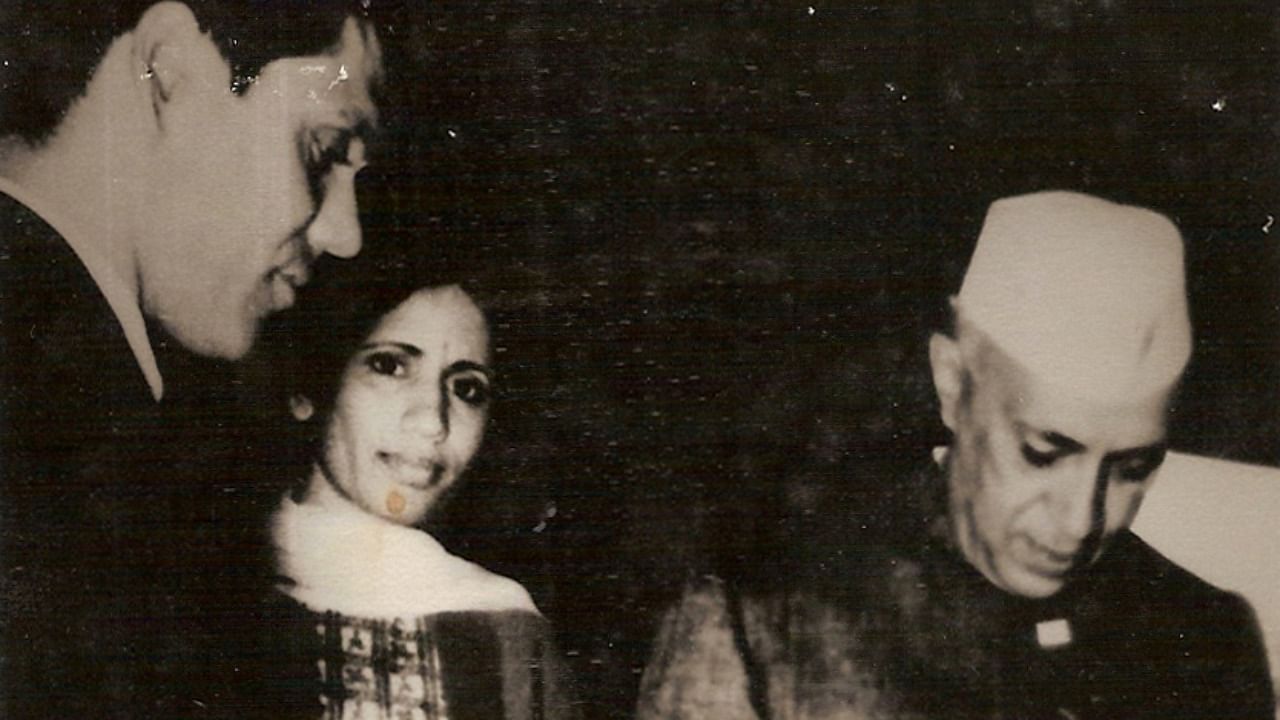
I still vividly recall that humid Tuesday summer evening 58 years ago when Pandit Jawaharlal Nehru haltingly climbed the few steps of the helicopter stairway that would take him and Indira back to Delhi after their four days of rest and relaxation in the sylvan environs of Dehra Dun’s Circuit House.
I was in that small group comprising civil and military officials, a few Congressmen and a handful of journalists who had gathered at the helipad on the Cantonment Polo Grounds to bid farewell to Pandit Nehru. It was on Tuesday, the 26th of May, 1964, and as the sun meandered on its westward journey, its path strewn with flaming orange, still some distance away from its resting abode, Nehru looked back at the assorted gathering and gave a faint smile. My heart skipped a beat; I had never seen Nehru give such an insipid smile; he didn’t look his usual self. Though he did wave at us jauntily with his right hand but that too looked like a laboured effort. I then imagined that his left hand was less active than his right. Nehru’s left knee appeared somewhat stiff, hampering his brisk usual gait. Possibly, those symptoms were the after-effects of the stroke that had afflicted him a few days earlier in Bhubaneswar.
Also Read: Architect of modern India: Congress pays tributes to Jawaharlal Nehru on death anniversary
In retrospect, I had then felt that there was a strange sort of expression on Nehru’s face. Did he wish to convey something to those of us who had assembled there to bid him adieu? Was that to be the last and final goodbye? Did he have a premonition about his death? District Magistrate AP Dikshit, during whose tenure Nehru had visited Dehra Dun on five occasions, had written a book in 1965 on those visits titled ‘Antim Charan’. I later found that my impressions tallied with those of Dikshit.
Nehru had felt relaxed
In fact, Nehru had felt so relaxed during his visit that he wanted to stay a bit longer and talked about postponing by a day his departure for New Delhi. He also casually mentioned that he had some appointments in Delhi only in the afternoon of May 27 and he could easily fly to Delhi on the 27th morning. Dikshit was quick to seize this opportunity and suggested that he extend his stay in Dehra Dun through May and June, adding that all the important files and papers could be sent to Dehra Dun, ‘aur sab kaam yehan se ho jayega’.
‘Haan, kaam to sab ho jayega,’ Nehru replied philosophically. Was this a foreboding of a sort? But the postponement did not occur, and the original schedule was followed since it was felt that an overnight rest in Delhi would enable Nehru to keep his appointments the following day, rested and relaxed. But the expected restful night turned into a restless one. Nehru awoke several times during the night and was given a sedative by Nathu Ram, his personal attendant. His condition worsened; early that morning, Indira and Dr Bedi, his physician, were summoned. Nehru seemed somewhat disoriented when the two appeared by his bedside and asked: "What is the matter?" And then, he fell into a coma and died at 1.44 pm on Wednesday, May 27. Though he missed his scheduled appointments in Delhi that afternoon, he nevertheless did keep the ‘final appointment’ with his creator.
The news of his death on that Wednesday afternoon shocked every Indian. But those of us who had seen him off at the helipad the evening before were totally shattered. We all had great regard and affection for Nehru, and we felt that Nehru’s death was our personal loss since we had only seen him less than 24 hours before.
Dehra Dun was Nehru’s weakness
Dehra Dun was Nehru’s weakness, and he would visit the Valley town on any pretext, and even no pretext. As the prime minister, he loved visiting Dehra Dun and felt greatly relaxed in the sylvan environs of its circuit house, now converted into Raj Bhawan. He would stroll across its expansive wooded grounds or sit silently for hours under his favourite camphor tree with birds for companions listening to their chirping. Occasionally, he read or wrote and sometimes dictated depending on the mood of the hour. He didn’t believe in mixing business with the holidays and, in fact, discouraged any official or political engagements. If any PAs or PSs accompanied Nehru on his visits to Dehra Dun, they generally remained inconspicuous. Here he felt at home and at peace. It was a sheer coincidence that Nehru/s last four days, from May 23 to May 26, 1964, too were spent in the city he had loved so dearly.
At 92 today, I am the only survivor from that farewell group of 1964. On his every death anniversary, I shed many silent tears to pay my homage to the great man I greatly admire. In retrospect, I very much regret the many lost opportunities that could have brought me closer to Nehru, but alas, that was not to be.
(Raj Kanwar is a 92-year-old Dehra Dun-based veteran journalist, writer and author.)
Disclaimer: The views expressed above are the author's own. They do not necessarily reflect the views of DH.